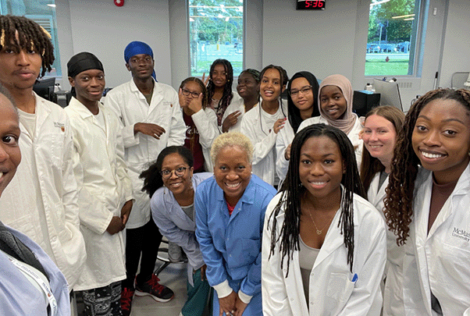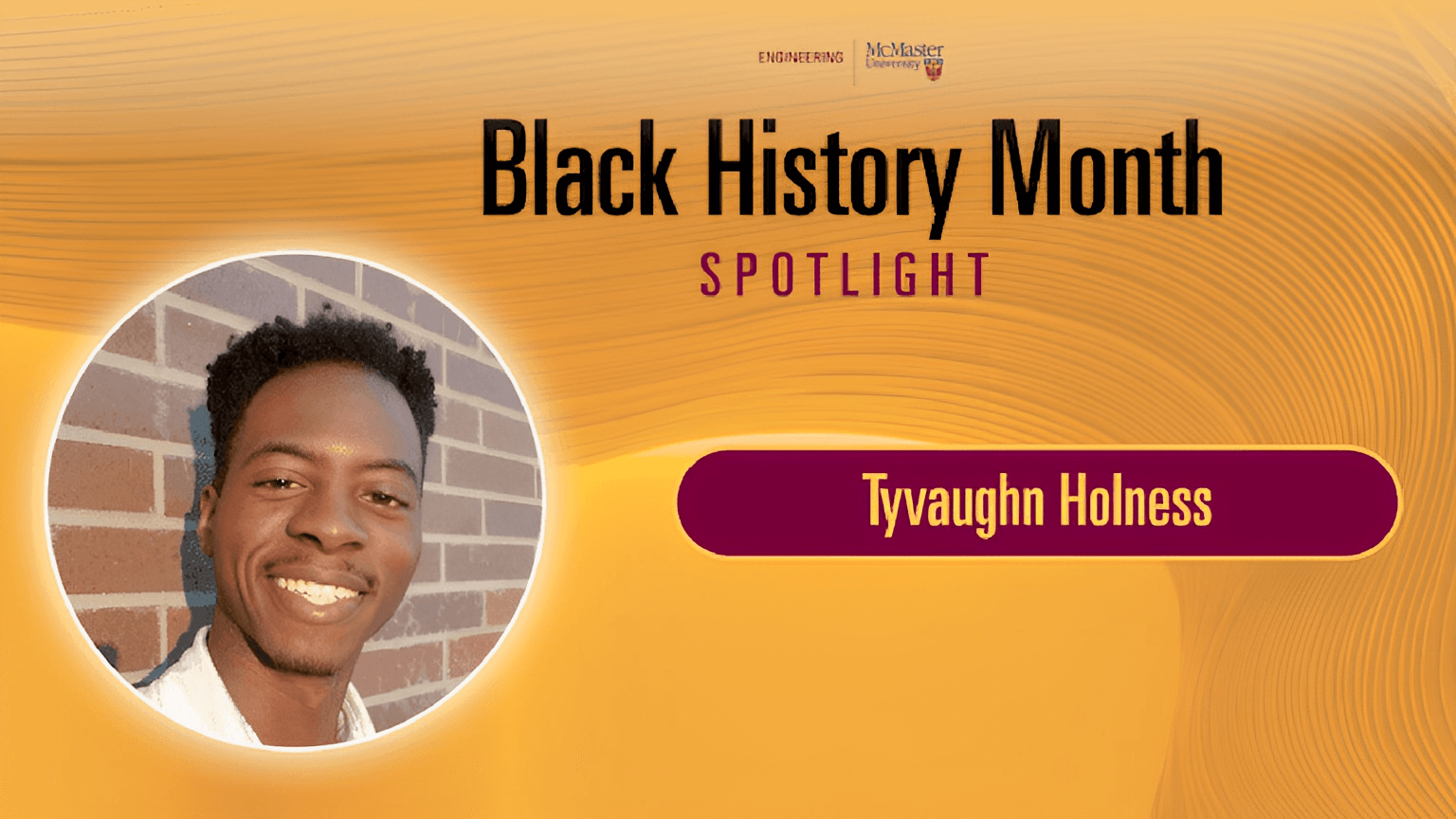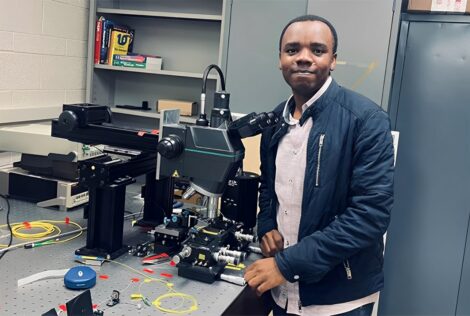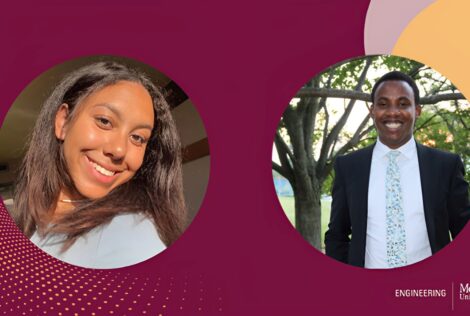

Tyvaughn Holness, Electrical Engineering Class of 2020, reflects on the power of persistence both for Black History Month and his career.
Tyvaughn Holness is an Electrical Engineering alumni, Class of 2020. Currently, he is a hardware design specialist at Kepler communications. Kepler’s mission is to build the Internet of space. Recently, Kepler has announced the development of a new “constellation” of 13+ satellites to be deployed into space. Tyvaughn has also been a part of multiple start-ups including Age-Rate and ClinicalVR.
In his spotlight, Tyvaughn discusses supporting Black creators, what it means to be a Black engineer, taking advantage of your undergraduate years and more!
What does Black History Month mean to you?
Black History is a time to reflect on the year that I’ve had. I look at how I’ve developed my Blackness—the relationships that I’ve grown and the perspectives I’ve leveraged.
Black History Month also means supporting Black entrepreneurs and Black businesses. I take every chance to amplify Black creators and their products through my social media platforms. I’m proud to see my friends succeed and encourage everyone to lend their support, whether it be stopping by Black-Owned Business shops or helping spread awareness of these entrepreneurs online.
What does it mean to be a Black engineer?
Being a Black engineer means being present and taking up space. It is important for me to pave the path ahead in a space which is typically white.
The three other components are patience, perseverance, and persistence. Patience; allow yourself the time to learn and attract opportunities. Perseverance—keep going regardless of failures. And finally persistence; keep reaching for what seems unattainable.
While we don’t acknowledge it, luck plays a huge part in life. It’s really important to be patient, persevere and persist. Though you may get many “no’s”, it takes just one “yes”—one moment of luck—for things to pay off.
What motivates you to work hard?
I put pressure on myself to accept challenges because I see the impact that it has on others. And, I’m surrounded by people who are passionate about their work. Kepler is a small team but everyone has the drive. My team, and the impact of my work motivate me to work hard.
What is it like to work in the industry?
It’s fascinating—space has truly propelled itself forwards recently. I’ve always been a fan of aerospace. When I was younger, I wanted to be a pilot. I joined the Air Cadets during high school and joined the satellite team at McMaster.
The space industry is very technologically advanced. When you are developing for space, you are pushing the boundaries of what we can do engineering-wise. Such technologies can be leveraged on earth for immense progress. I love that I’m a part of something that has a global impact and I’m surrounded by people who share the same passion.
How have your past roles shaped who you are today?
I graduated in the middle of the COVID-19 pandemic. I was going through job offers and negotiations. My first full-time role was in test engineering at Geological Surveying in Mississauga, Ontario. It was exciting but it didn’t really match the career path that I wanted to take for myself.
It was a difficult realization but it taught me what I actually wanted to learn. It motivated me to change into a systems engineering role which gave me a global perspective. Despite being based in Toronto, we were working with people internationally.
That led me to my current role at Kepler in hardware engineering. I like having experience across the board and being able to approach problems from the perspective of various engineers.
How do you make the most of your undergraduate years?
I strongly suggest that you invest in people and relationships. People are what make your university years one of the best experiences of your life. Opportunities and memories come from people whether it is networking at an event, going to a conference with your friends or chatting with your professor after class!


